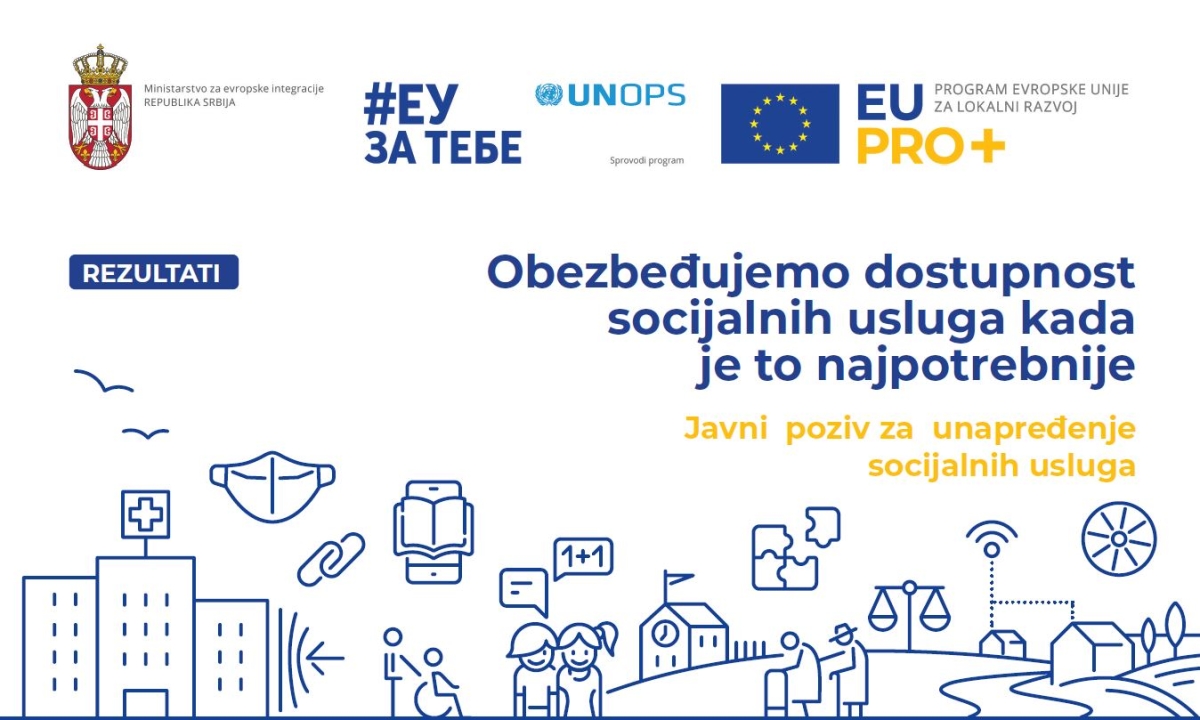Belgrade, 22 September 2022
Improvement of social services at local level with the EU support
"Support to the vulnerable groups and provision of quality social services are among the joint priorities of the Government of Serbia and the EU, while both local self-governments and civil society organisations play a major role in achieving this goal. The fact that as many as 18 projects will be implemented in partnership between local administrations, public institutions and civil society is particularly encouraging, as they will work in a coordinated manner to provide adequate social services to children, the elderly, people with disabilities and other vulnerable groups at the local level," said Jadranka Joksimović, Minister of European Integration.
"Improving social inclusion and achieving equal rights, including the availability of social services to all citizens, are what the EU stands for in all its activities. By supporting these projects, we encourage local partnerships that will improve the quality and scope of social services for vulnerable groups, primarily social protection services, as well as education and health care," said the Head of the Delegation of the European Union to Serbia, Ambassador Emanuele Giaufret.
The projects were selected within the Public Call for Strengthening Social Services, open from 14 January to 7 March 7, 2022 and the implementation of which was supported by the Ministry of Labour, Employment, Veterans and Social Affairs. Out of a total of 90 project proposals received, 20 projects, which were evaluated as the best, will receive support in the amount of 10,000 to 30,000 Euros for activities that will, among other things, focus on improving services aimed at children and young people, including the services of a personal companion of a child, neurofeedback therapy, day care centres for children with disabilities and behavioural problems, day care centres for street children, as well as home care services for adults and the elderly, personal assistance for people with disabilities and other services.
The approved projects, in addition to improving the readiness and resilience of primarily public institutions but also other social service providers for possible future emergency situations and periods of crisis, should also contribute to reducing the negative impact of Covid 19 on the quality of life of vulnerable groups.
The list of approved projects is available here on the website of the EU PRO Plus programme.
